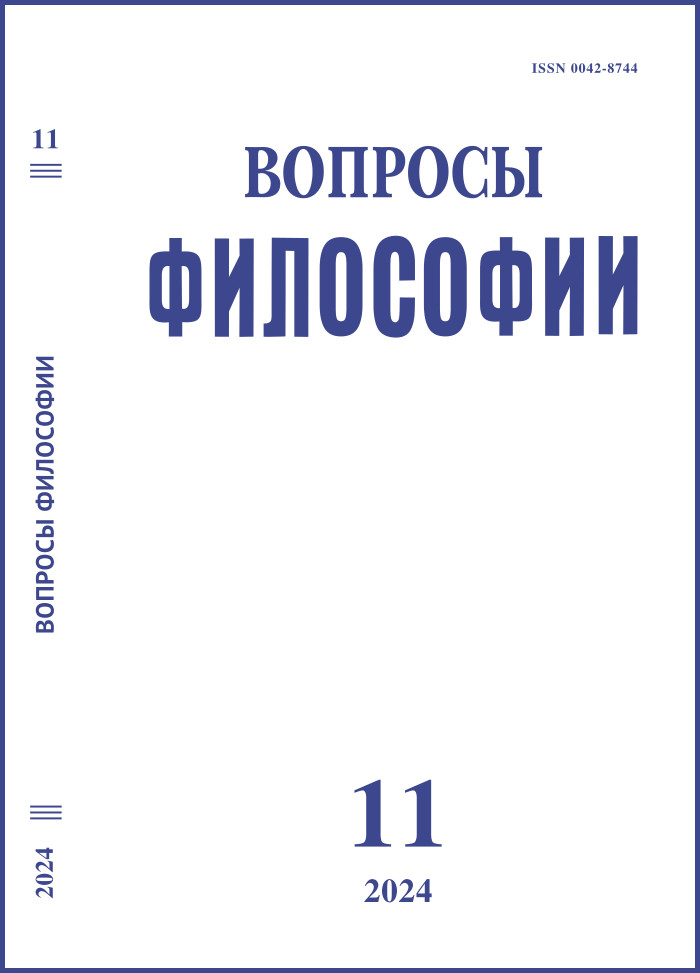Will as Thought or Emotion? An Attempt of Phenomenological Reconsideration
DOI:
https://doi.org/10.21146/0042-8744-2024-11-17-26Keywords:
will, thought, consciousness, emotion, intention, non-cognitive, emotional streamAbstract
The article denotes the possibility of understanding the will as a violent emotion – rejecting ordinary phenomenological-psychological understanding of the will as an intentional-correlative thoughtful-like structure. In the will there is no mechanism of forming aims as a representation or an unconscious target – neither is purposefulness nor correlativity between the aim and its direction, as a well as mechanism for changing the will’s changes in connection with its content. A modification of intentional-correlative structure as adapting to the will – showing the will through filling-emptying this structure with content – is useless. These vulnerabilities of the ordinary understanding of the will are not evident when the will is considered in mixture with thought and deeds and in the approach to wishes, which are also comprehended intentional-correlatively. Understanding of the will as a causality would allow to reject these mixtures, demonstrating the will outside the aim and its direction simply as a stream, which provokes deeds. Thus the will could be clarified as an emotion in its heightened excitement, independently of its content, as providing its stream in its sensual texture, conjugations and intensity. The excitement of the will would be clear in its homogenous character as steadfastness or reinforcement – without overfalls and struggle in motives. This specification of the will would show its mechanism for overcoming obstacles, its peculiarities in experiencing strength and (positive or negative) marks, in coordination with thought and motives. The struggle against obstacles, possibility of aims and purposefulness rise exclusively in deeds through thought rather than in will

